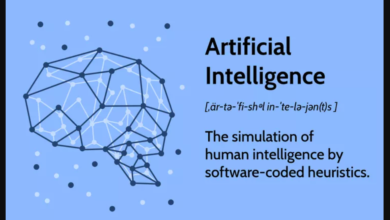How Generative AI Is Going to Change the Educational Landscape
Akila Subasinghe - Senior Lecturer / University of Sri Jayewardenepura
How Generative AI Is Going to Change the Educational Landscape
In the ever-evolving world of education, the advent of generative artificial intelligence (AI) promises to revolutionize the learning process, significantly impacting both students and educators. Traditional methods of learning have long been the cornerstone of education, but they have come with their fair share of challenges.
In the past, students predominantly relied on traditional teaching methods, which often involved generic or mass teaching approaches. These methods presented several challenges. Students with varying learning paces and styles often found it challenging to keep up in a one-size-fits-all classroom environment (Brown & Jones, 2018).
To address these challenges, many students sought additional support, leading to a surge in private tuition. According to Fortune business insights, the Asia Pacific private tutoring market was estimated to be worth about US $70.85 billion (Fortune business insights). This indicates a substantial demand for personalized learning experiences.
Generative AI can be viewed as a personal tutor that addresses these shortcomings. By utilizing advanced algorithms, it tailors the learning experience to the individual student. This personalization helps students learn at their own pace, with content and feedback that cater to their unique needs, ultimately improving their learning outcomes (Liu and Kenneth, 2017).
Some available generative AI tools for students at present include language models like GPT-3, which can generate text-based explanations and answers to students’ questions, and adaptive learning platforms like Khan Academy, which adjust content based on a student’s performance and needs.
While generative AI offers substantial benefits to students, it also presents challenges to educators. Technology’s ability to provide personalized content reduces the reliance on teachers and traditional teaching materials. This shift raises questions about the evolving role of educators in the classroom.
With generative AI capable of generating high-quality essays and assignments, maintaining academic integrity in the classroom is becoming an impossible task. The significant number of false positives detections given by systems such as GPT Zero and Turnitin makes them highly unreliable in the academic domain.
To address this issue, assessments will need to change. Take home assignments and essay type answers may yield useless as the content can be easily created using generative AI. Therefore, teachers would have to move towards innovative assessment methods that focus on critical thinking and problem-solving skills.
Despite the opposition of some communities, generative AI models are here to stay and both educators as well as students will have to change their mode of operation accordingly. For example, generative AI models have already changed the way we learn languages (Duolingo), correct grammar (Grammarly) and even the way we create graphics (Midjourney).
In conclusion, generative AI is poised to reshape the educational landscape forever, offering personalized learning experiences to students while posing challenges and opportunities for educators. As we navigate this transformative journey, one thing is clear: the future of education will be increasingly shaped by the capabilities of generative AI, ushering in a new era of learning and teaching.
- Brown, P. C., & Jones, B. D. (2018). Make It Stick: The Science of Successful Learning. Harvard University Press.
- Report on the global private tutoring market: – https://www.fortunebusinessinsights.com/private-tutoring-market-104753
- Liu, Ran; Koedinger, Kenneth R. Closing the Loop: Automated Data-Driven Cognitive Model Discoveries Lead to Improved Instruction and Learning Gains. Journal of Educational Data Mining, v9 n1 p25-41 2017

The author’s name: Akila Subasinghe
Profession: Senior Lecturer
School/ University/Institute: University of Sri Jayewardenepura
Email Address: akila@sjp.ac.lk
Contact Number: (mobile) +94-771-957194
Address: Faculty of Engineering – Uni of Sri Jayewardenepura, 41, Lumbini Avenue, Rathmalana, Sri Lanka.

